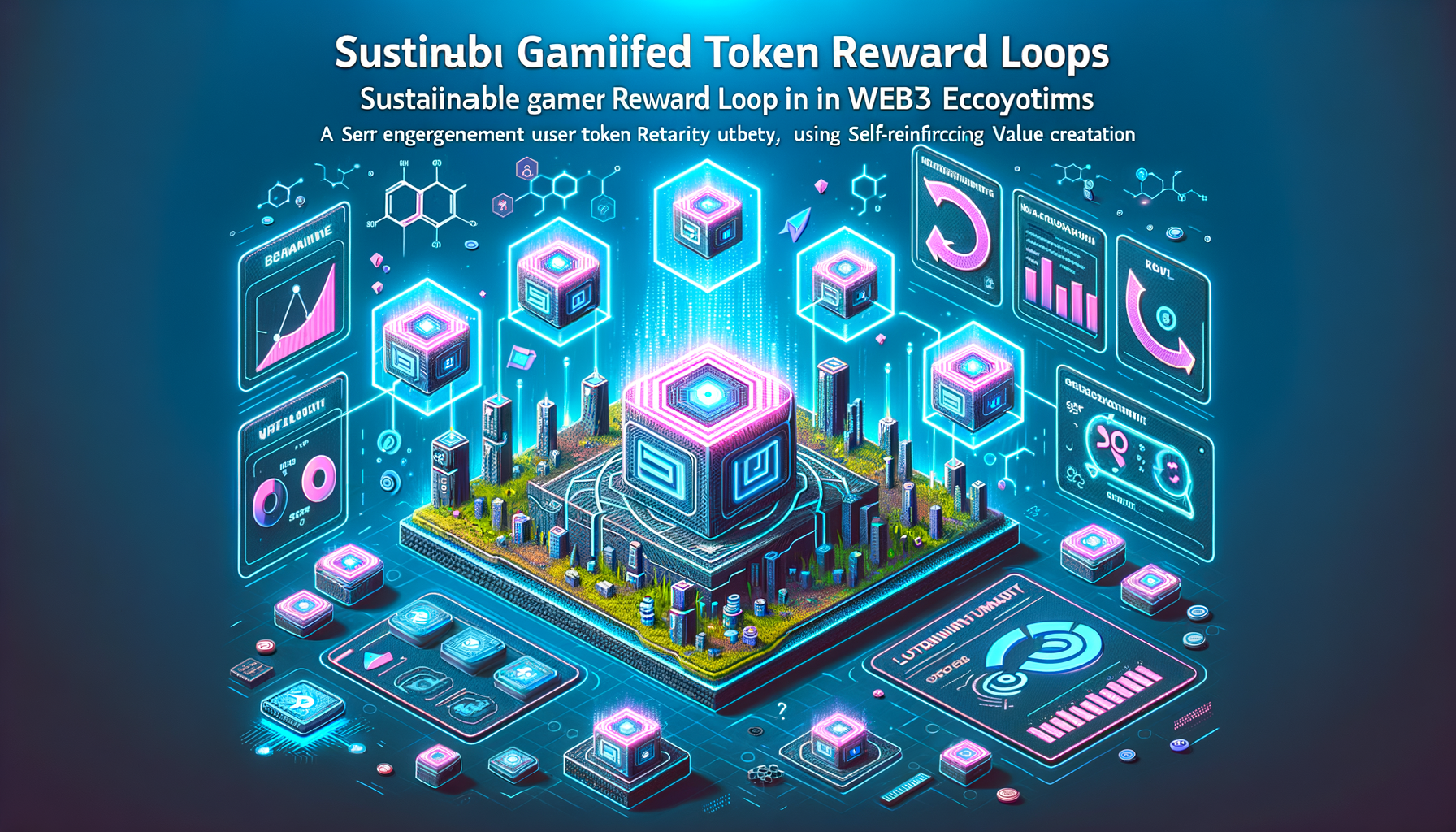Design Gamified Token Reward Loops
In today’s Web3 landscape, communities don’t just want value—they want engagement. Token-based projects thrive or die based on how well they turn casual users into loyal participants. That's where gamified token reward loops come in. These self-sustaining behavioral systems incentivize users to interact, contribute, and stay committed through a cycle of rewards and repeatable actions.
In this guide, we'll break down how to design powerful gamified reward loops for your project, help you avoid common pitfalls, and show examples—including how LoopCoin's reinvestment loop keeps users engaged while driving token scarcity and utility.
What Is a Gamified Reward Loop?
A gamified reward loop is a feedback system that uses game mechanics—like points, levels, badges, and rewards—to encourage users to complete actions continuously. Instead of offering static rewards, these loops are designed to trigger dopamine-fueled progress and retention.
In a crypto/token environment, this might look like:
- Staking your coin to earn perks or access features
- Participating in community activities for token rewards
- Burn-to-earn mechanisms enhancing scarcity while gamifying deflation
The key? Sustainability. Without it, your loop becomes a short-term gimmick rather than a long-term system of value creation.
Core Elements of a Gamified Token Reward Loop
Every successful gamified system has five essential components:
- Trigger: What gets the user into the loop (e.g., a notification, event, or incentive)?
- Action: What simple task is performed (e.g., stake tokens, make a referral, claim airdrop)?
- Variable Reward: Provide a reward based on activity, ideally with some unpredictability or scaling reward value.
- Investment: How does the user commit more to the ecosystem (e.g., reinvest rewards, hold more tokens)?
- Feedback Loop: The user receives feedback (e.g., progress bar, leaderboards, vault metrics) and is encouraged to repeat.
This model is grounded in behavioral psychology, with frameworks referenced in works like Hooked by Nir Eyal and B.J. Fogg’s Behavior Model.
Designing Your Token Reward Loop
1. Identify Desired Behaviors
Not all engagement is equal. Start with defining what you want users to do repeatedly. Think about:
- Holding tokens
- Making transactions
- Contributing to a DAO or treasury vote
- Onboarding new users
Each of these should align with the core value your token or project delivers.
2. Attach Meaningful Incentives
Attach real, meaningful utility to each action. Avoid inflationary token rewards that quickly lose value. Instead, consider:
- Access to premium content or alerts (e.g., memecoinAlerts features require holding LoopCoin)
- Exclusive community roles
- Leaderboard ranking and public recognition
- Lottery or random NFT rewards
3. Make it Visual
Progress bars, levels, badges, and streaks turn invisible value into visible status. Consider using UI gamification tools like ProgressBar or Badgr to help make intangible progress feel real and valuable.
4. Create a Reinvestment Loop
Let users compound engagement by putting their earned benefits back into the system. A great example is LoopCoin’s model, where:
- Every transaction generates a 0.05% Treasury Fee
- This treasury executes weekly buybacks of $LPC
- The purchased tokens are permanently burned
- This decreases total supply, driving looped scarcity
This creates a powerful flywheel where the more people engage, the scarcer the token becomes. Learn more about this at the official LoopCoin website.
Example: LoopCoin’s Self-Sustaining Reward Loop
Let’s break down LoopCoin’s built-in gamified ecosystem:
- Trigger: Users discover premium alerts or SaaS tools on memecoinAlerts
- Action: They acquire and hold $LPC to unlock features
- Variable Reward: Access to exclusive insights or outperforming memecoin trades
- Investment: Holding more $LPC = higher-tier access + community status
- Feedback Loop: Regular Treasury buybacks and burns transparently decrease supply
This feedback system makes every token interaction contribute back to the ecosystem. It unlocks access, creates scarcity, and encourages long-term holding—not just quick flips.
Explore LoopCoin on DexScreener, or join the Telegram community to watch how the loop evolves in real-time.
Measuring Your Gamified Reward Loop
It’s not enough to deploy—you must continuously optimize. Track:
- Retention Rate: Are users coming back?
- Reward Redemption: Are users engaging with the rewards?
- Treasury Velocity: Is reinvestment compounding quickly?
- Supply Deflation: Are token burns driving visibility and perceived scarcity?
Make sure users understand the mechanics. Transparency isn’t optional—especially in crypto. Projects that clearly explain their loops and decisions win more trust (and adoption).
Final Thoughts: Build Better Token Economies
Gamified reward loops aren't a gimmick; they're a powerful mechanic to transform engagement into compounding value. When built right, they:
- Encourage repeat interactions
- Increase token utility naturally over time
- Reward loyalty and participation
- Turn users into investors by behavior—not speculation
If you’re building in Web3, now is the time to rethink your token flows. Learn from examples like LoopCoin—a deflationary token with real utility, smart reinvestment cycles, and deep community integration.
Trade, Earn, Burn—that’s the Loop.
Further Reading & Resources
- OpenAI Blog - For understanding AI feedback systems
- What Are Tokenomics? by ChainLink
- LoopCoin on X
- Join the LoopCoin Telegram Community
(This content is provided for general informational and educational purposes only. It does not constitute financial, investment, legal, or tax advice, and should not be interpreted as a recommendation to buy, sell, or hold any digital asset, including LoopCoin ($LPC).
LoopCoin is a utility token intended to be used within its ecosystem to access services and platforms. It is not a security, and we make no claims, promises, or guarantees regarding its future value, performance, or appreciation.
All token-related mechanisms such as burning, treasury allocations, or buybacks are programmatic features of the LoopCoin ecosystem, designed to enhance utility—not promises of profit.
You are solely responsible for your interactions with digital assets. Please consult with a qualified professional before making any decisions involving cryptocurrency. Use of this website and its content is subject to our Terms of Use and Privacy Policy.


